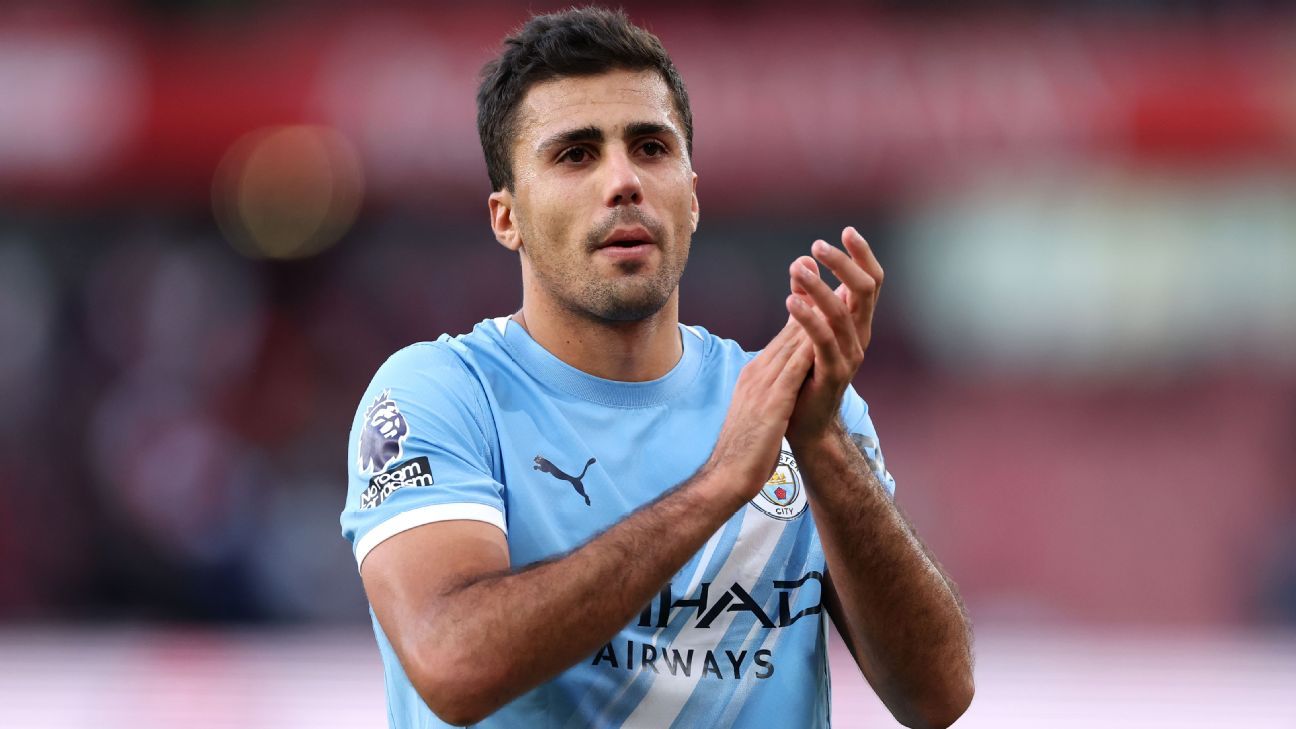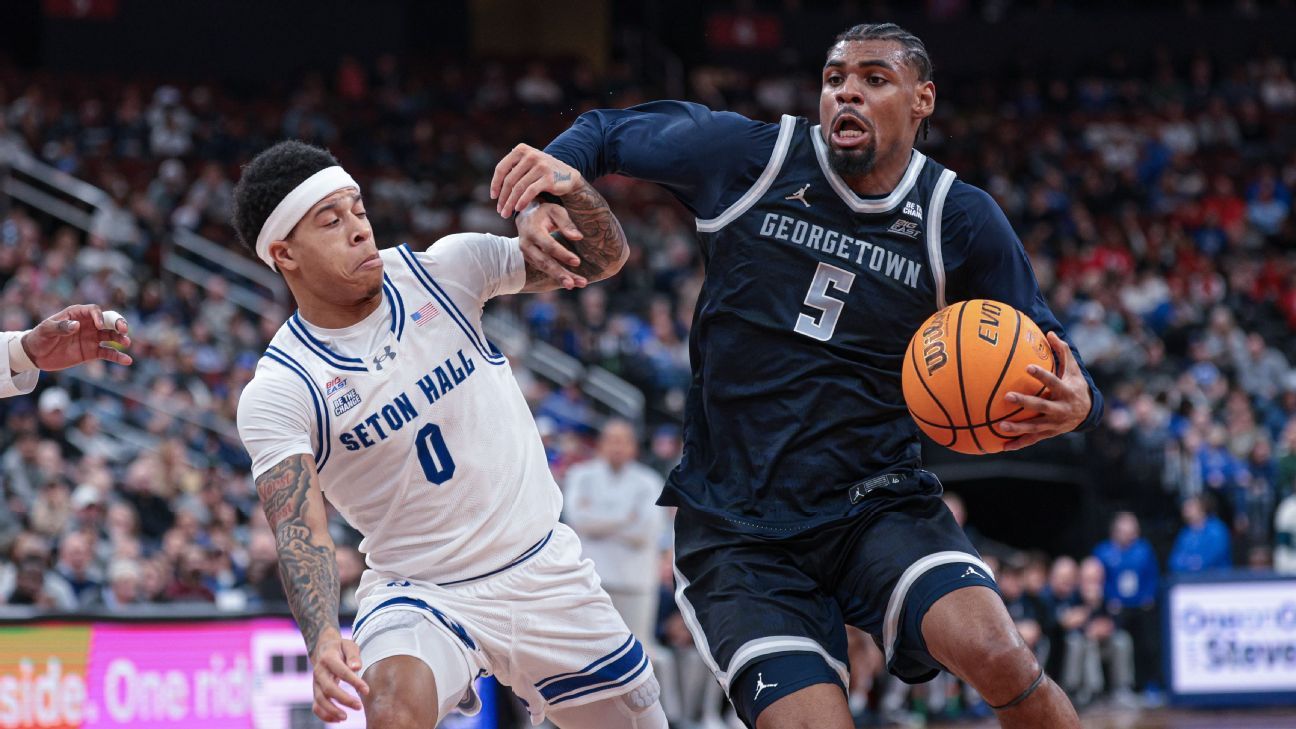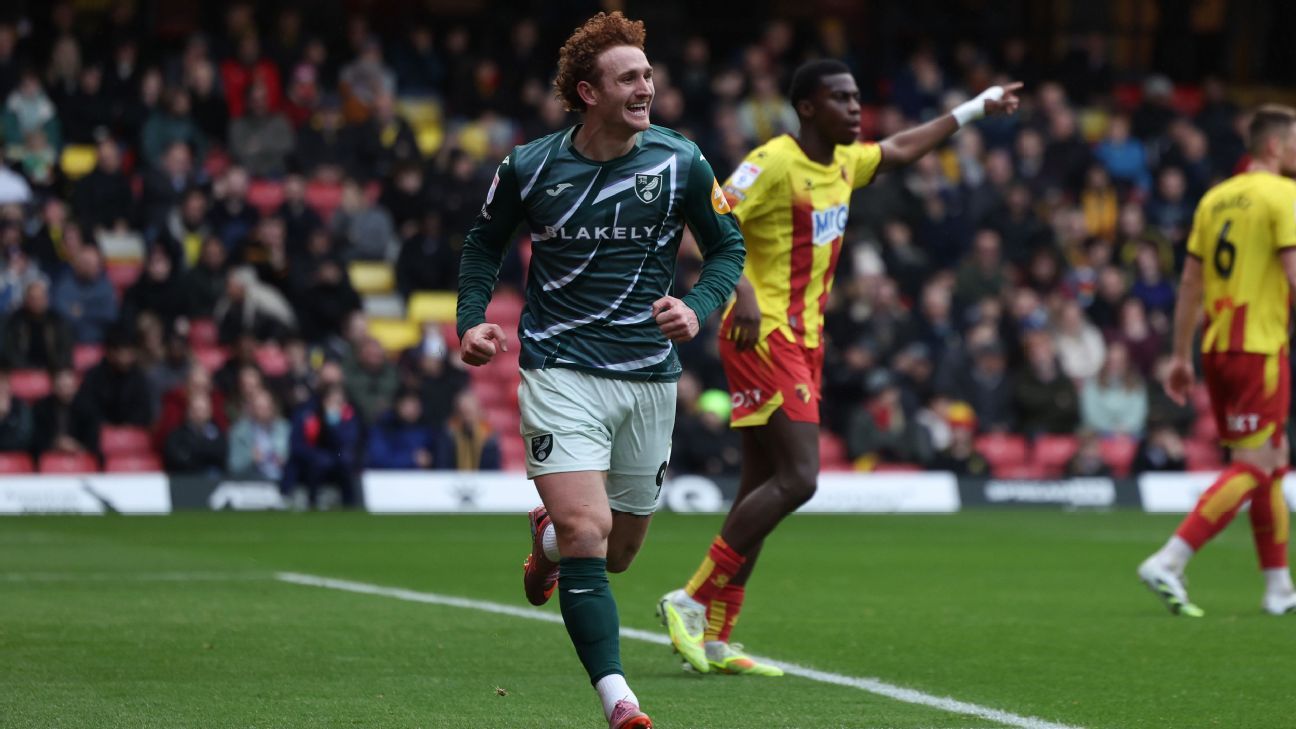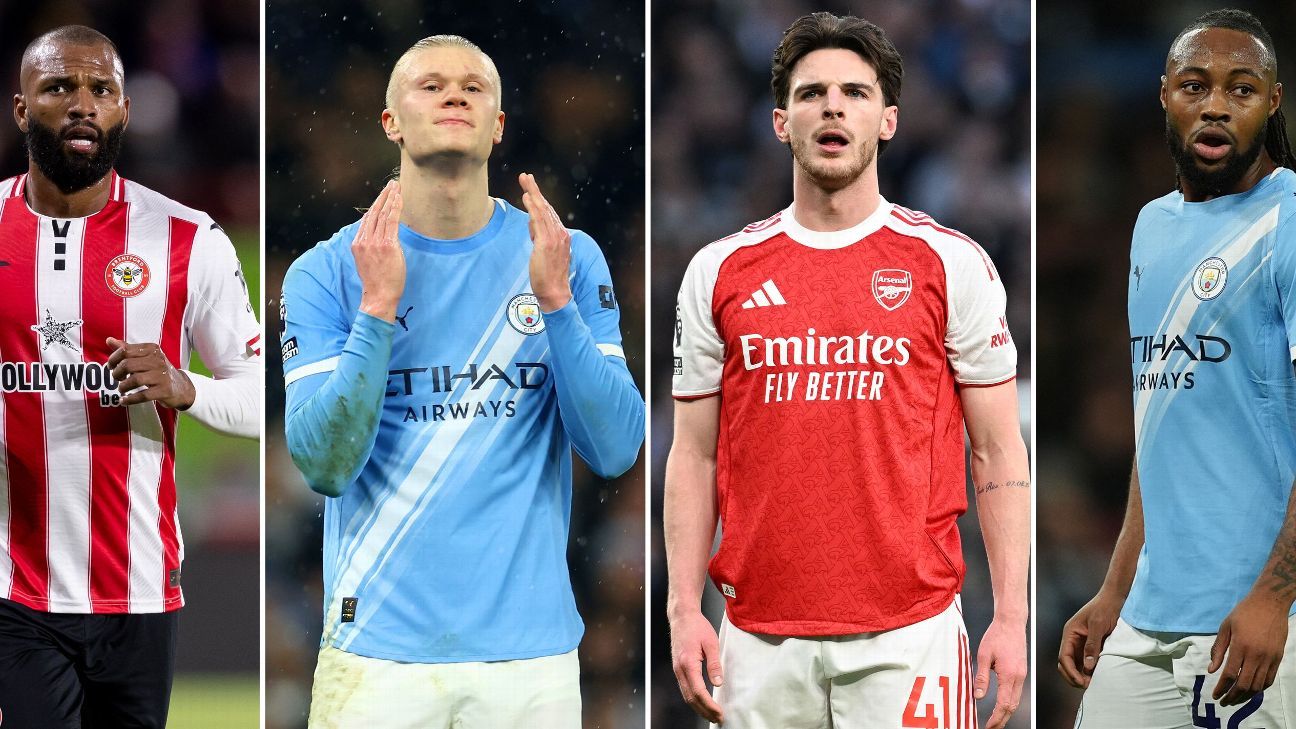Sports
City’s Guardiola: Rodri had ‘lot of pain in knee’

Pep Guardiola has confirmed midfielder Rodri missed Manchester City’s resounding 5-1 win over Burnley due to having pain in his knee.
The 2024 Ballon d’Or winner suffered an ACL tear in September 2024 in the 2-2 draw with Arsenal which ruled him out for almost the entire rest of the season.
He has since had further setbacks which saw him miss City’s 4-0 Premier League opening win over Wolves, while he played only 15 minutes in the 2-0 defeat to Tottenham.
The Spain midfielder appeared to be returning to full fitness after starting three games in a week against Manchester United, Napoli and Arsenal but Guardiola confirmed Rodri was not named in the squad for the romp of Burnley due to pain in his knee again.
“Rodri was training and said, ‘I’m not able to play. I have a lot of pain in my knee. I cannot play, I cannot play.’ And I said, ‘if you cannot play, you cannot play’,” Guardiola said.
– Grealish on Man City exit: Partying didn’t help, but not the reason
– Guardiola hails Doku’s improvement after Man City win: ‘Wow!’
– Man City close to agreeing new deal for Savinho – sources
Nico González started in place of Rodri at the Etihad on Saturday, as City rose to seventh in the table thanks to two Maxime Estève own goals, an Erling Haaland brace and a goal from Matheus Nunes.
Rico Lewis covered the defensive midfield role in the 2-0 Carabao Cup win over Huddersfield.
City face Monaco in the Champions League on Wednesday and Guardiola could not say whether Rodri would be fit for the clash with the Ligue 1 side. “I don’t know yet, I don’t know [about Rodri’s fitness],” Guardiola said.
Sports
Georgetown guard KJ Lewis (ankle) out for rest of season

WASHINGTON — Georgetown junior guard KJ Lewis will miss the remainder of the regular season with a left ankle injury, the team said Thursday.
Lewis, who is in his first season with the Hoyas after transferring from Arizona, injured his left ankle during Georgetown’s 76-60 loss to Marquette on Tuesday. Including Tuesday’s loss, Lewis has appeared in every Georgetown game this season and led the team by averaging 14.9 points.
The Hoyas are tied with Marquette and Xavier for last in the Big East with a 5-12 conference record. Georgetown is 13-15 overall under third-year head coach Ed Cooley.
Sports
USMNT’s Sargent joins Toronto after ‘unfortunate’ Norwich exit

Toronto FC has completed the transfer of United States international striker Josh Sargent from English Championship side Norwich City, the club announced on Friday.
ESPN had previously reported that Toronto will pay Norwich a fee of $22 million, which could rise to $27 million if certain incentives are met. The fee currently ranks in the top five that an MLS side has ever paid for an incoming transfer.
The highest-ever fee is believed to be the $26 million that LAFC paid for Son Heung-Min last summer, which the Sargent move will eclipse if all the incentives are reached.
– Sources: McKennie close to new Juventus contract
– Sources: Miami target Blackmon inks Caps deal
– USMNT’s Pulisic, AC Milan surprise fans with pre-match reveal of new kit
Sargent has signed a five-and-half-year contract that will keep him in Toronto through June of 2031.
In an interview with ESPN, Sargent said that with the arrival of his third child last December, he and his wife Kirsten were eager to get back to North America to be closer to extended family.
The team that Toronto is putting together, one that includes international teammates Djordje Mihailovic and Walker Zimmerman, also held appeal for Sargent.
“Over the last year or so, with all of my kids and everything in my family expanding, it’s kind of become more and more appealing, the thought of moving a bit closer to home.” Sargent said about joining TFC.
“Toronto reached out, I had very good talks with them. They seem to have a very good project that they have planned here. The ownership is all about it and they’re all in with it. So there were just a lot of things that sounded very attractive to me and very clear of their vision. So yeah, it was exciting.”
The move completes a bitter transfer saga that began last December when Toronto first made its approach with an offer of $18 million. When talks appeared to break down in January, Sargent sat out an FA Cup match against Walsall on Jan. 11, and following a meeting with sporting director Ben Knapper and manager Philippe Clement, Sargent was sent to train with the Canaries’ U21 side.
Sources tell ESPN that during that meeting, Knapper made comments about Sargent’s family. Sargent was seen to be visibly upset by these remarks, and he never played for Norwich again.
Sargent didn’t go into much detail about his final days with the Canaries.
“It was unfortunate how things worked out there, I think,” he said about Norwich. “But I’m happy to finally be here, happy to get started with a new chapter in my life and I’m just fully focused on trying to put that behind me and hit the ground running here.”
When asked if he had gotten the chance to say a proper goodbye, Sargent added, “I think the only thing I’m going to say is there’s two sides to every story. I think I got to say goodbye to all the people that I was close to, and understood the situation and yeah, that’s probably all I want to say about it to be honest.”
The move is the latest in a lengthy rebuild for Toronto that finally appears to be coming to fruition. Toronto claimed a domestic treble of MLS Cup, Supporters’ Shield and Canadian Championship in 2017, but the last time the Reds qualified for the postseason was in the Covid-impacted season of 2020.
In addition to Mihailovic and Zimmerman, Toronto recently acquired midfielder Dániel Sallói. TFC has an experienced manager in Robin Fraser.
“I know there’s a lot of video [Fraser] is wanting to do on that side of things for sure,” Sargent said.
Sargent finishes his Norwich career with 55 goals and 15 assists in all competitions. He scored seven goals in 23 league matches this season.
His international prospects have dwindled this campaign, with his last callup to the U.S. men’s national team occurring back in September. He hasn’t scored for the U.S. since 2019.
When asked how he thinks the move will impact his international prospects, Sargent said he’s fully focused on Toronto, and didn’t discuss the potential move with U.S. head coach Mauricio Pochettino.
“I’m fully focused on trying to start well here,” he said. “That’s truly what I care about, and if you do well at the club level, it puts you in a good position to get with [the] national team. So that’s where my full focus is at the moment. And off the back of that, if I can get back with the team, have another chance, I’d be very happy, of course.”
Additionally, Toronto FC acquired St. Louis City SC’s right of first refusal (ROFR) for Sargent in exchange for $500,000 in General Allocation Money (GAM) — $250,000 in 2026 GAM and $250,000 in 2027 GAM — and up to an additional $225,000 in conditional GAM if certain performance-based metrics are met.
He will be added to TFC’s roster, pending a medical and receipt of his work permit and International Transfer Certificate (ITC).
Sports
Haaland, Rice, Semenyo: Who is your Premier League Player of the Year?

We’re fast approaching the business end of the 2025-26 Premier League season, and heading into March, everything is still very much to play for. The title race has coalesced into a two-team battle between leaders Arsenal and chasers Manchester City, while the push for Champions League soccer next season is neatly poised between several clubs — defending champions Liverpool are on the outside looking in, needing to close the gap to Aston Villa, Manchester United and Chelsea.
At the bottom end of the table, Wolves‘ fate appears certain (they are 17 points adrift from safety with just 10 games left) and, to a lesser extent, Burnley‘s too (eight points back with 11 to play), but the third and final relegation spot could go to any one of Nottingham Forest, Tottenham or Leeds United from here.
Equally hard to call is the race for the Premier League’s Player of the Year, with no clear-cut, stand-out candidate yet and plenty of stars making a clear case for the prize. So, with 10 matchdays left, we asked our regular Premier League reporters to make their picks for the top award, and why they are worthy.
Tom Hamilton: Sometimes it makes sense to go for the obvious option. If Manchester City win the league, then you could argue their standout player was one of Bernardo Silva (for his guile), Nico O’Reilly (for his adaptability and temperament) or new arrivals Gianluigi Donnarumma and Antoine Semenyo. But if you want the clear and obvious choice, then it’s Haaland, the man at the top of the scoring charts.
The Norway forward is in the middle of a relatively quiet spell for his club, but his 22 league goals have helped City to where they are. The big change for Haaland this year? He’s becoming more of an all-around contributor and his work rate is through the roof, to the extent that he has also notched seven assists, second only to Bruno Fernandes and one behind his best total of eight back in the 2022-23 campaign. That’s 29 goal contributions. Not bad.
Take City’s recent 2-1 win over Newcastle: Haaland had more touches of the ball than ever before (43), he made the third-most clearances for the team (after Rodri and Marc Guéhi) and won 12 duels, the most he has managed in a top-flight game. “He’s an incredible, generous player, so today is a performance, and I’ll never forget what Erling has done for us,” manager Pep Guardiola said afterward.
So be afraid, Premier League: Haaland is evolving into a more all-around player, and his goals and assists should see him deservedly crowned player of the season.
James Olley: With everything in the league still to play for, from title to top four to relegation, it’s too early to be conclusive about this, but Arsenal are top of the table at present, and Declan Rice has been the heartbeat of a team competing impressively on four fronts.
Only Martín Zubimendi (2,360) has played more outfield Premier League minutes for the Gunners than Rice’s 2,329, and Rice ranks second in the division for chances created (defined by Opta as key passes and assists) behind Bruno Fernandes. But he is about much more than stats. Rice drives the Arsenal team forward as he has developed into a complete midfielder, affecting the game in his box-to-box role while also proving an extremely efficient set piece taker.
If Arsenal are to keep the pace, it will largely be a result of Rice maintaining the level of form and influence he has shown so far.
Sam Tighe: When there’s no “obvious” pick like during this season, it can trick you into thinking there haven’t been any outstanding candidates. But as the group outlines, we’re hardly short of incredible individual campaigns, are we?
I’ll throw my support in for James’ pick of Rice. In a Premier League landscape where physicality, mobility and tenacity reign supreme, the 27-year-old is the division’s leading light. To put it into context, among Arsenal players, only Zubimendi (293.57 km) has covered more ground than Rice (285.48 km) this term, while among all Premier League central midfielders, only Sandro Tonali (33.37 km/h) has clocked a higher max speed than Rice (33.17 km/h).
Rice is fast and relentless; if the Gunners win the title, his frenzied, all-action style will symbolize their approach to doing so. Yet he also backs up those athletic traits with finesse where required. There are very few better corner takers in the sport right now, and there’s no doubt he’s steadily getting better at picking a pass through the lines.
Beth Lindop: It might seem preposterous to nominate a Liverpool player considering how abject they have been at times this season, but in terms of pure individual excellence, Szoboszlai would be my pick.
In the summer, there was a suggestion in some quarters that the Hungary international could lose his place in the team following the arrival of the £116 million playmaker, Florian Wirtz, from Bayer Leverkusen. However, Szoboszlai has this season established himself as the first name on Arne Slot’s team sheet, with his relentless running, tactical flexibility and, of course, his eye for a spectacular strike having kept the Reds’ campaign from descending into total disaster.
With 10 goals to his name already this season, Szoboszlai is well on course to surpass his career-best goal tally. He has also deputized admirably at right back amid Liverpool’s ongoing injury crisis, while his noticeable willingness to speak more frequently to the media is reflective of a player keen to assume more responsibility within the team and position himself as a future club captain.
Liverpool’s disappointing collective form means Szoboszlai will most likely miss out on individual accolades, but he should definitely be in the conversation.
Antoine Semenyo, FW, Manchester City (formerly at Bournemouth)
Mark Ogden: This is a tough one because there really hasn’t been an outstanding candidate so far this season, but my pick right now would be Semenyo. He was outstanding for Bournemouth during the first half of the season — his 10 Premier League goals kept Andoni Iraola on the tails of the top six for a while — but his performances meant it was inevitable he would move on in January, and he had a queue of heavyweight clubs wanting to sign him before he chose Manchester City.
Even though a deal was done and his release clause was triggered, Semenyo agreed to stay at Bournemouth for two extra games in January before making his move. No fuss, no drama: just a professional attitude and the perfect sign-off with a stoppage time winner against Spurs in his final game.
His form at City has been just as impressive, and he kept them in the title race during their midseason wobble with three goals in his first five games. So for performing at his top level for two clubs and showing professionalism throughout, I’m going for Semenyo.
Rob Dawson: There were genuine concerns about whether Brentford would be able to avoid relegation this season after losing manager Thomas Frank — as well as key players Bryan Mbeumo, Yoane Wissa, Christian Nørgaard and Mark Flekken — in one summer. Goals were expected to be a particular problem after both Mbeumo and Wissa — who combined for 39 in the Premier League last season — moved on.
Frank’s replacement, Keith Andrews, deserves a lot of credit for turning this season into a push for Europe instead of a battle against the drop. But so too does Igor Thiago. His 17 league goals have cushioned the blow of losing Mbeumo and Wissa. It’s a fantastic return for a 24-year-old striker in his first full campaign in England after last season was ruined by injury.
Scoring goals in the toughest league in the world is a big ask, and Thiago has done it regularly. Unfortunately for Brentford, he has done so well that the inevitable question will be: How long can they keep him before he follows Mbeumo and Wissa out of the door?
Gab Marcotti: To me, it’s pretty simple. Aston Villa might be on the slide, but they’re still third, well ahead of Liverpool, Manchester United and Chelsea. And this is after a summer when they didn’t really add anybody of note and lost their sporting director, Monchi, as well. A lot of that is down to Rogers: He has started every game and has usually been a difference-maker each time.
Rogers doesn’t have the greatest supporting cast — certainly not compared to the other suggestions who are sure to crop up — and I think it’s fair to say that, without him, Villa would be midtable at best. Only four players have more open play goal involvements (non-penalty goals and assists) than he does this season, and all of them play for bigger and better-resourced sides: Haaland, Fernandes, Semenyo and João Pedro.
Throw in the fact that he invented Cole Palmer‘s goal celebration — they were teammates at City, and Palmer “borrowed” it from him — and to me he’s the obvious choice.
 Martín Zubimendi, MF, Arsenal
Martín Zubimendi, MF, Arsenal
Julien Laurens: When Arsenal spent €60 million last summer to activate his release clause and recruit him from Real Sociedad, there were a lot of skeptics about his adaptation to the Premier League, his potential and even his talent, but there was also concern about his ability to take the Gunners to the next level. And yet, I think he has already proved all the doubters wrong.
It has not always been perfect, obviously — remember his mistake against Manchester United — but overall, he has been impressive. His ability to dictate the tempo of a game, his intelligence and his reading of the play have been outstanding. He has also scored five Premier League goals already, which is more than Szoboszlai, more than Rice and only three less than Rogers, who is a more advanced player, by the way. Some of his goals have also been key, such as the openers against Forest, Leeds and Sunderland, in keeping Arsenal on course for a potential first league title in over 20 years.
Zubimendi makes Rice and Jurriën Timber better, and there is still so much room for improvement from him as well. He has had such a great impact on the team that it’s worth celebrating.
-

 Tech1 week ago
Tech1 week agoA $10K Bounty Awaits Anyone Who Can Hack Ring Cameras to Stop Sharing Data With Amazon
-

 Business1 week ago
Business1 week agoUS Top Court Blocks Trump’s Tariff Orders: Does It Mean Zero Duties For Indian Goods?
-

 Fashion1 week ago
Fashion1 week agoICE cotton ticks higher on crude oil rally
-

 Tech1 week ago
Tech1 week agoDonald Trump Jr.’s Private DC Club Has Mysterious Ties to an Ex-Cop With a Controversial Past
-

 Business7 days ago
Business7 days agoEye-popping rise in one year: Betting on just gold and silver for long-term wealth creation? Think again! – The Times of India
-

 Entertainment1 week ago
Entertainment1 week agoThe White Lotus” creator Mike White reflects on his time on “Survivor
-

 Politics6 days ago
Politics6 days agoPakistan carries out precision strikes on seven militant hideouts in Afghanistan
-

 Politics1 week ago
Politics1 week agoUS Supreme Court strikes down Trump’s trade tariff measures






